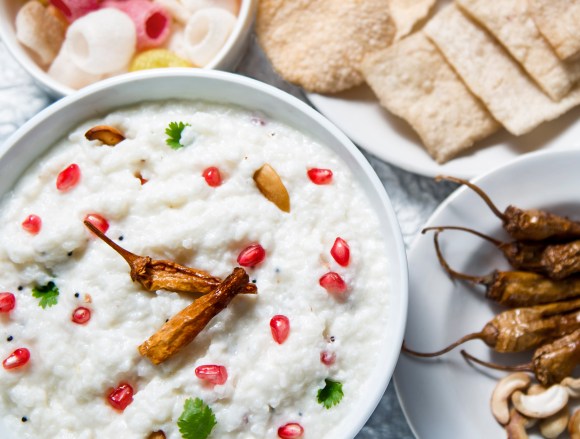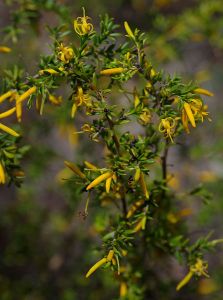
The victor from India’s Wiki Loves Food contest: curd rice. Postcards sent to Indian “Wikipedia Asian Month” participants could use this imagery. Photo by Sudharshan Shanmugasundaram, CC BY-SA 4.0.
Wikipedia Asian Month is an initiative aiming to bring the Wikimedia Asian Communities together to improve articles about Asian countries and regions on every language edition of Wikipedia. Throughout this month, more than twenty Wikipedia communities will take part in an online edit-a-thon, encouraging Wikipedians to improve the quality of Asian topics, as well as helping the rest of the world understand more about Asia and its many cultural groups.
The online edit-a-thon will ask participants to write at least five articles related to Asia. Those who achieve this will receive a postcard from seven Wikimedian communities in Asia: Mainland China, India, Indonesia, Japan, the Philippines, Taiwan and Thailand. Postcards from each country or region will be specially designed with a local feature. For example, Indian postcards will feature a photograph from the Wiki Loves Food initiative (first prize winner above).
Wikipedia’s Asian Community still has very high potential—of the top 25 language editions of Wikipedia, only nine are from Asia. In terms of readership, the global unique visitors of Wikimedia projects total about 374.82 million (in June 2015, not including mobile devices), but unique visitors from the Asia Pacific region total only 83.64 million, about 22.31 percent of all visitors. Considering that 32% of the world’s Internet users come from the Asia-Pacific region, Wikimedia’s communities in Asia have much room to grow.
That said, Wikimedia’s Asian communities are now starting to emerge. Since January 2013, thirteen new user groups in Asia have been recognized, and while some Asian-language versions of Wikipedia have relatively few articles, they have sizeable active communities. For example, the Azerbaijani and Thai Wikipedias both have fewer than 100,000 articles, and come in at 55th and 56th respectively on the list of Wikipedias by article count, but they rank 34th and 26th by active users.
Wikipedia Asian Month is here, and we welcome your participation. Check here if your home Wikipedia is participating in the Asian Month, or maybe become the event’s organizer on your home Wikipedia!
Addis Wang, Wikimedia User Group China
In brief
Team news: Updates from the Performance team, Community Tech team, Developer Relations, VisualEditor, and Reading Strategy are available.
C-level: Interim Chief Operating Officer Terry Gilbey is leaving the WMF; Vice President of Human Resources Boryana Dineva is joining the C-level team; the search for a Chief Financial Officer is still in progress. More information is available in Executive Director Lila Tretikov’s announcement.
Welcome to your community digest! This is a weekly feature for the blog, and we would like to invite you to take part in putting it together. This digest of Wikimedia community news will pull together items from around the globe to provide a venue for your updates and a diverse roundup of events. It aims to emulate and supplement already-existing community news outlets.
Contributions are welcome! If your Wikimedia community has a milestone, cool new project, or quirky occurrence, please leave a message on our tip line, send me an email, or drop a message at my talk page.
Ed Erhart, Editorial Associate, Wikimedia Foundation

Can you help us translate this article?
In order for this article to reach as many people as possible we would like your help. Can you translate this article to get the message out?
Start translation
